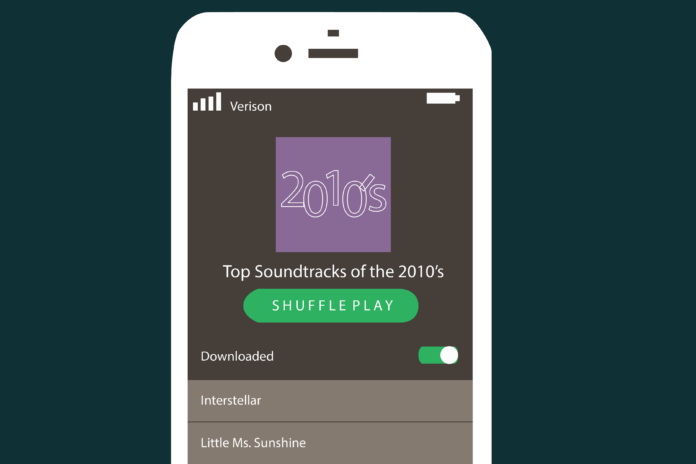From Reznor and Ross to Zimmer
Cinema is a sentimental itch. It’s the lasting tug when you leave the theater that forces you to take an extra couple moments out of your day to reflect. An invaluable asset in cultivating this pull is the score of the film, which, when done right, mimics the emotional palette and accentuates the tone. This past decade was iconic for film scoring, as world-class veterans like Hans Zimmer continued to build on their illustrious career while other newcomers like Justin Hurwitz and Nicholas Brittel burst into the spotlight. In the spirit of shelter-in-place, I thought I would take a stroll down memory lane and share a list of my favorite scores from the 2010s.
“Interstellar” (2014)
This list could consist solely of Hans Zimmer’s pieces, but I settled on the score set to Christopher Nolan’s science fiction film “Interstellar.” Zimmer worked closely with Nolan and spent over two years crafting the score. The focal point of the arrangement is an organ — a grand 1926 four-manual Harrison & Harrison organ located at the 12th-century Temple Church in London, to be precise. From a shuddering boom to bright wistful notes, the array of sounds it produces is mind-boggling. Mirroring Nolan’s obsession with time, Zimmer uses the tick, tick, tick of a clock hand alongside the organ. Tracks like “No Time for Caution” and “Mountains” leave listeners feeling like they’re peering into an endless void of the unknown. In the presence of the grand organ mixed with the unnerving ticking clock, Zimmer beckons you to jump, to fling yourself into space and revel in the unknown. And yet within this aura of isolation, there is also an undeniably human characteristic. Zimmer described the organ as having a living, breathing presence with tangible exhales at every note. The score expertly moves between that of religious reverence for the universe and innate curiosity in spirit.
“Moonlight” (2016)
Nicholas Brittel features as the composer for the 2016 Best Picture winner “Moonlight.” Brittel takes an unconventional approach to the soundtrack, employing a chop and screw production method to give it a mesmerizing woozy effect. The audience walks through the upbringing of Chiron, also known as “Little” — an impoverished black boy from the outskirts of Miami — in three distinct life stages, as he struggles with his own sexuality and environmental hardships, like an abusive mother and adolescent bullying. Brittel’s solemn backtracking conveys the emotional plight of Chiron and the internal confusion of adolescence and growing up. Behind a grounding solemn piano, the audience also hears a nervous violin sputtering in distress. Given the intimate cinematography, Brittel imbued the movie with a backing that resonates on the same wavelength as Little, representing his internal world and giving color to the little boy’s conflict between identity and surrounding expectations.
“La La Land” (2016)
Ah yes, what kind of list would this be without the dizzying talents of composer Justin Hurwitz? Perhaps the most talked about film of 2016, “La La Land” fixed itself to its soundtrack, and for that reason, Hurwitz had to get it right. The jazz-infused sounds with more classical musical numbers complement the stunning, highly-saturated visuals. Tracks like “Planetarium” exude giddy weightlessness that mimic the onscreen gravity-defying dancing of actors Emma Stone and Ryan Gosling. People have been humming and tapping along with Hurwitz’s score since its release and will continue to do so for years to come.
“Inception” (2010)
Yes, Zimmer graces the list once again with “Inception.” The track “Time,” when paired with the iconic ending top scene, is almost good enough to propel the track to the top of this list by itself. Zimmer, once again working with director Christopher Nolan, crafts an auditory landscape that underscores the introspective, often unsettling themes of the Academy Award-winning film. Filled with the ebbs and flow of violin, wary and subtle plucks of the piano and iconic teeth-rattling “BRAAMS” (a specific horn sound), the score is as intimate as it is epic. Zimmer draws you further and further into Nolan’s world and forces you to realign yourself with reality when the credits finally cue.
“The Social Network” (2010)
The creators of the score for “The Social Network,” a movie about the lawsuit-plagued rise of Mark Zuckerburg and Facebook, are Trent Reznor and Atticus Ross. Reznor (the founder and lead vocalist of Nine Inch Nails) and Ross’s approach to the score was as unconventional and distant as the protagonist in the film. The score casts an eerie cloud over the events that transpire. The emotional apex of the film’s best representative of Trent and Reznor’s craft occurs when Eduardo Saverin, played by Andrew Garfield, confronts Zuckerberg over being weaseled out of his fair share of stock in Facebook. An underlying drone and prudent, heavy piano keys are synced as the scene unfolds. Although minimal, every tone and layer frame the dialogue in a climate of boiling intensity.
Written by: Andrew Williams — arts@theaggie.org






no women?